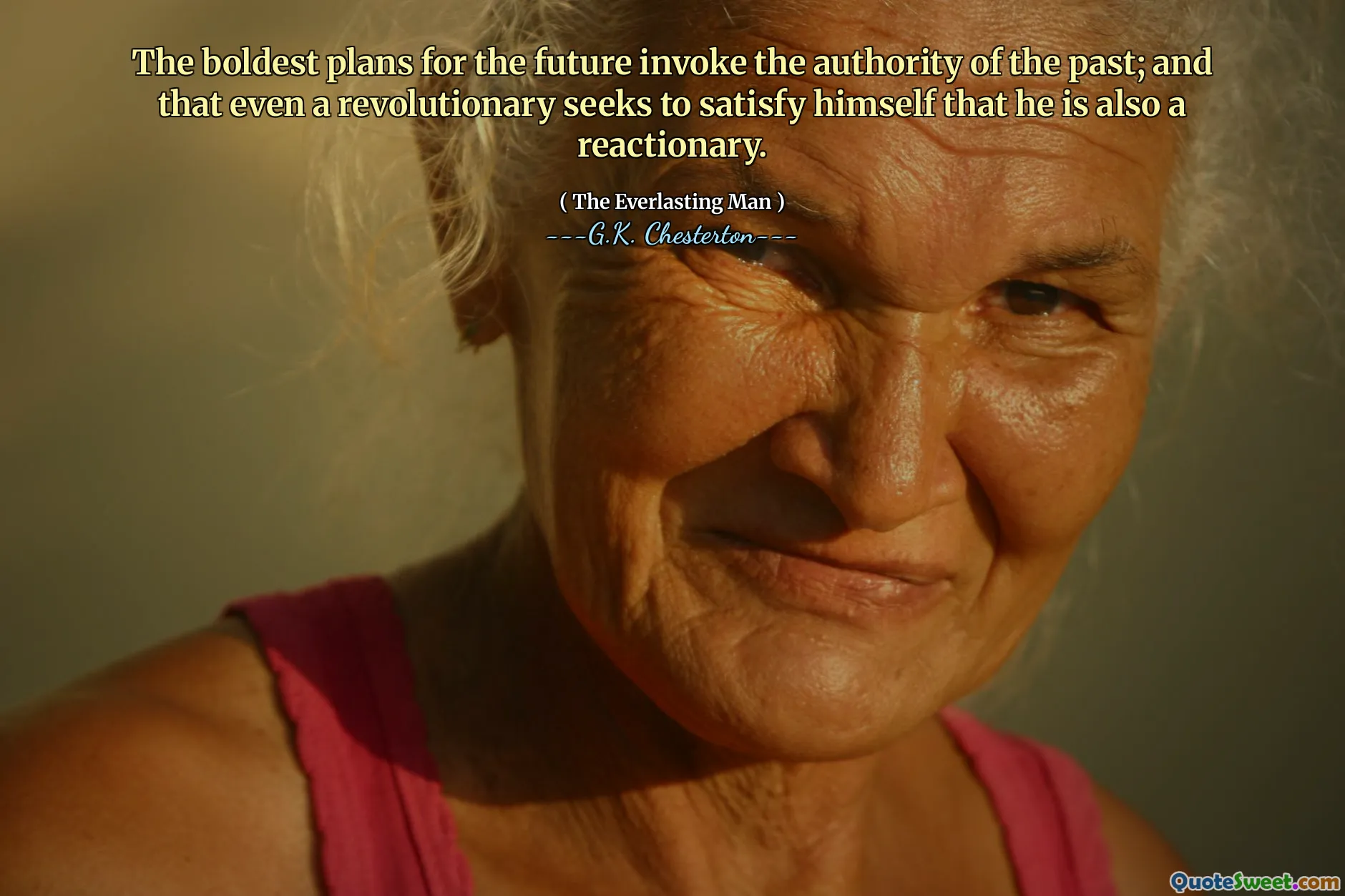
The boldest plans for the future invoke the authority of the past; and that even a revolutionary seeks to satisfy himself that he is also a reactionary.
This quote by G.K. Chesterton highlights the intriguing interplay between progress and tradition. It suggests that even those who champion revolutionary change are, in a subtle way, rooted in the authority of the past. Revolutionary ideas often emerge not in a vacuum, but as responses or reactions to existing structures, beliefs, and values. The act of overthrowing the old often requires an implicit acknowledgment of its influence and significance—a sort of acknowledgment that in order to create something new, one must understand what is being challenged. This reflects the cyclical nature of history, where societies and ideas tend to oscillate between change and conservation.
Thinking of revolutionaries as also being reactionaries emphasizes the continuity inherent in human development. Every attempt at radical change is built upon prior knowledge, values, and societal norms—whether consciously or subconsciously. They seek to transform the future, but their visions are nonetheless shaped by memories of the past, whether these are ideals to uphold or obstacles to overcome.
Additionally, this quote encourages us to reflect on the fluid boundaries between progress and reaction. It implies that revolutionary acts are often as much about affirming identity and values as they are about disrupting the status quo. It invites a deeper appreciation of how history and tradition influence even the most forward-looking endeavors. Ultimately, Chesterton's insight reminds us that human endeavors are rarely linear and that the interplay of past and future is fundamental to understanding societal evolution.






